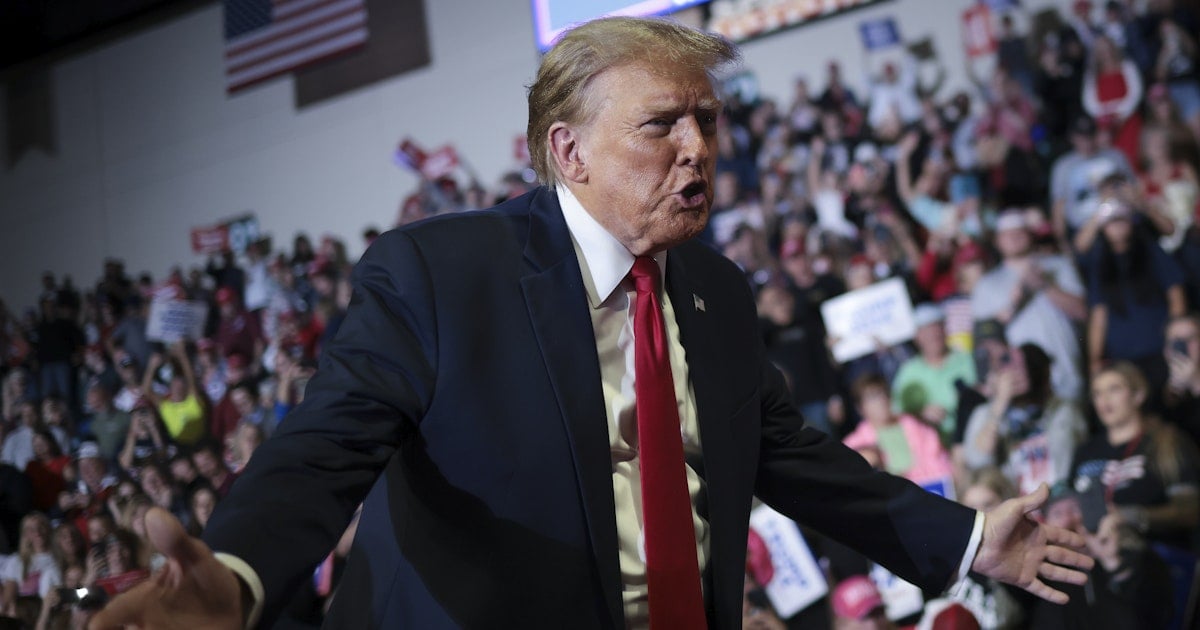Going way back in time, we had only a mainstream media—the Times and the Post and the Associated Press and the major networks. In the 1970s, after the famous Powell Memo, wealthy conservatives began funding their own media. For most of the last 50 years, even as the right-wing media grew, it remained clear that the mainstream media set the agenda—that is, it determined what we all talked about every day.
But recently, that flipped. This transformation has been in process for several years, but I date it to January 6 for two reasons. First, before that, the right-wing media didn’t have all-consuming power when it came to crunch time. They could not, for example, elect Donald Trump. There was still enough of a shred of news-gathering honesty at Fox News that it called Arizona for Joe Biden. Second, January 6 was a moment of choosing for the American right. Conservative politicians and the right-wing media could have woken up on January 7 and decided that enough was enough and they were captaining their MAGA-ized spaceship back down to planet Earth.
But we’ve seen how both of those matters sorted themselves out. Fox forced out the two people who made that Arizona call. . . . And on the second matter, with a few notable exceptions, virtually the whole party now embraces the January 6 “uprising” (or is too cowardly to say otherwise).



I think some of the thinking is ignoring the huge shift away from obvious plain-as-the-nose-on-your-face truths.
Yes, media has often been leveraged by wealthy and powerful to force a narrative. That is not new. What is new is the creation of narratives out of whole cloth.
If you don’t remember Nixon (if you’re under, 45 say) there was a years-long drama around “did the President lie” and “if he lied, was it illegal” that resulted in him leaving office early to avoid continued litigation. The only thing on any video outlet for a few days straight was congressional committee meetings. That’s a different world.
Imagine all your scrolling, 9am-5pm, was committee hearings, the same committee hearings, talking heads about the committee hearings, and more committee hearings. For days. It’s hard to imagine there could be a media environment like that.
And it was one in which journalism, unthinkably now, had some respect. News was serious. Written and presented by smart people. It was common for a reporter to make an effort to use plain language, but it wasn’t dumbed-down. That, believe it or not, started in the 80’s. With USA Today. It was a whole thing.
“The news” was where everyone - not just your demographic but all demographics started their conversations.
Was it pure objective truth? No. Was it used to start wars and destroy the environment for money? Yes. Well then what’s different between then and now?
Well, think of Qanon. If you’ve ever looked into any Qanon “thinking”, it becomes clear that it’s utterly without foundation in the real world. It’s fanfiction. And it gets “reported” as news.
That’s what is qualitatively different from news in the 70’s. That would never happen, because an editor would say “what the fuck is this” and throw it out for being completely made-up garbage. Not today. Today they run it. All of it, over and over until a gunman walks in to the pizza shop to find the basement where the kids are held. (There’s no basement, of course. The whole thing is right-wing made up garbage.)
So while I absolutely understand and even appreciate the cynical view that “so what, nothings changed” that is just not true. It has changed in a truly fundamental way that is more than dangerous. He’s right about that.
The worst part is, the most powerful voices to save truthful reporting are the corporate news industries, who are run by accountants, not journalists.
You are absolutely correct and this was very well stated. Television networks used to view news programs as a public service. They weren’t intended to generate revenue, but rather as part of the payback to the public in order to use the public airwaves.
Newspapers were always generally profit driven, but you had the distinction between the yellow journalism approach and the Grey Lady approach. There’s less of a distinction today, and you now have a phenomenon where the bad drives out the good via the Darwinian process that essentially boils down to being able to monetize clickbait.